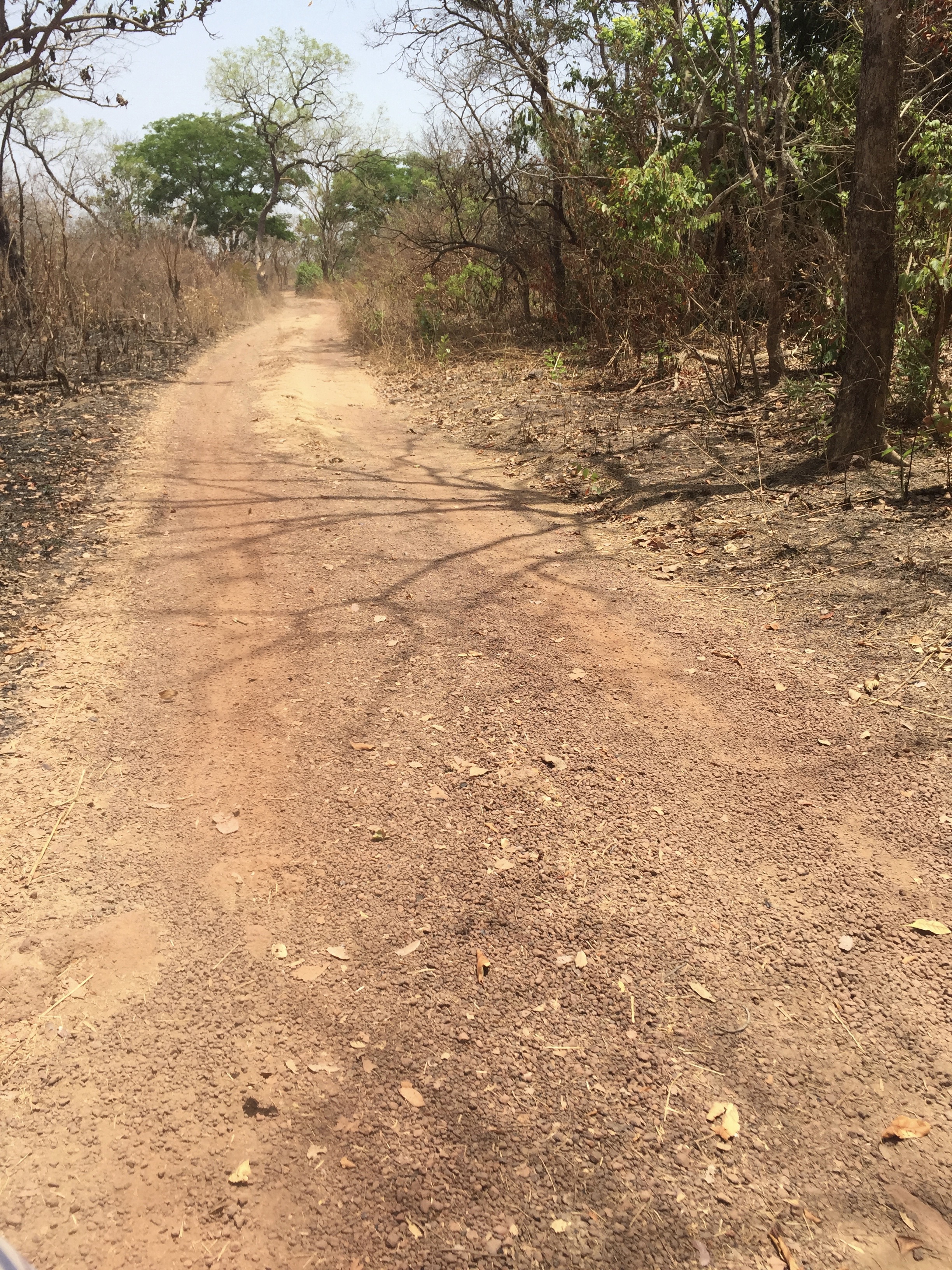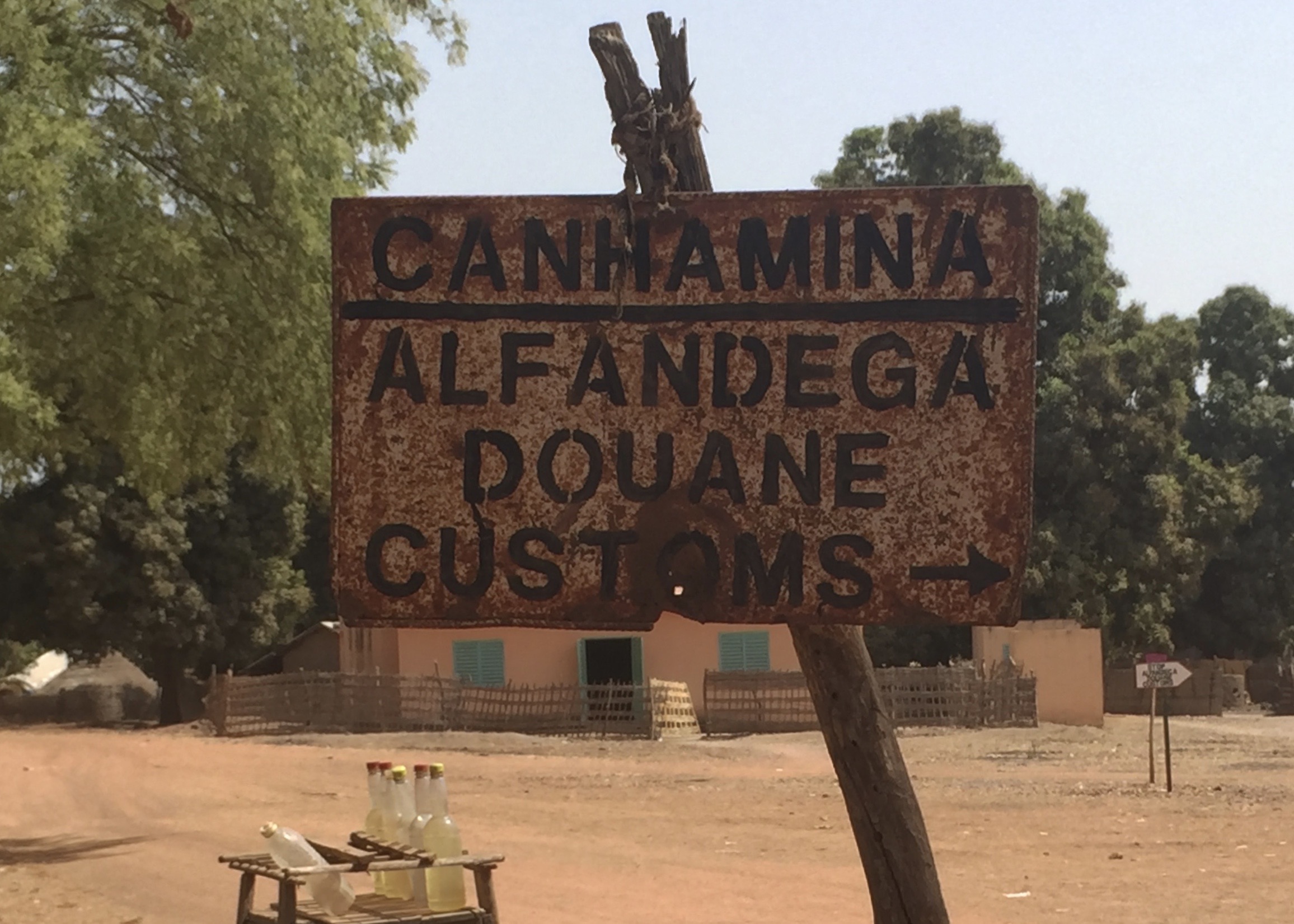Mariama Ba
Mariama Ba was born in the district of Paunca in the colony of Portuguese Guinea (Guinea-Bissau). She fled in the last year of the bloody war for independence in the country, initially settling in the village of Sare Kelefa in southern Senegal near the border. She waited until the end of the war to leave because she and her husband did not want to leave their families behind. She settled in Sare Kelefa because she had previous family members who had immigrated to Senegal from Portuguese Guinea. In Saare Kelefa, she had 13 children, before finally settling in town of Mampatim, where her 14th child was born. It was there that I interviewed her at the end of 2016.
Since the end of the war, Mariama has visited independent Guinea-Bissau every year to see family and friends. As she said to me, “Guinea-Bissau and Casamance [southern Senegal] is one place. There is jokkere endam [a Pulaar phrase meaning the maintenance of family ties].” Even though she was born in Guinea-Bissau, she was able to get a birth certificate in Senegal as an adult to allow her to claim Senegalese citizenship. This was due to her existing family ties in Senegal.
Like many Fulbe people in southern Senegambia, Mariama’s family history is one of migration. Her grandparents were born in the Futa Jallon region of French Guinea, but left because of poor treatment by the colonial government there. They settled in French Guinea, where her parents were born.
Interview
My name is Mariama Ba; I was born in Paunca [in Guinea-Bissau]. The end of the war brought me here [Senegal]. The year the war ended, we moved to Senegal and came to Saare Kelefa where I stayed until I had 13 kids. The 14 th was born in Mampatim; her name is Nafissatou. We ran from Guinea-Bissau because of the war; the year it ended we came here.
How many years was the war?
I don’t know exactly how long, but the war was long. The year the war began we were growing up. It continued until the year I was married and it was not two more months after that the war ended and we crossed until we came here. That took us out of Guinea-Bissau and brought us here to Casamance [southern Senegal].
Where were you before you came here?
We started in Paunca and came to Sare Kelefa. We then left Sare Kelefa and came here to Mampatim. Sare Kelefa is in Casamance near the river. In the region of Kolda.
Were your parents also born in Guinea-Bissau?
Yes, they were born there. My mom’s name is Dienaba Diallo and my father is Amadou Ba. My husband also grew up there; his mother and father too. We are all from the same village.
Did your husband come because of the war or…?
Yes, the war made him leave and come here.
Why did you stop in Sare Kelefa and not continue to Mampatim?
We had relatives in Sare Kelefa, that’s why.
Had your relatives been there a long time before you went there?
Yes, they were there a long time and are still there today.
How long were you there?
I stayed there a long time because thirteen of my children were born there.
Were you in touch with your relatives in Sare Kelefa while you were in Guinea-Bissau?
Yes, that is why we left Paunca and came to Sare Kelefa.
Was it difficult to cross the border from Guinea-Bissau to Senegal?
Nothing was difficult. No one ever stopped us; we never had a problem. The government was only in Pirada and Wassadou [35 kilometers southeast of Mampatim], and they never bothered us. But if you went directly from here, you would not see anyone [from the government].

